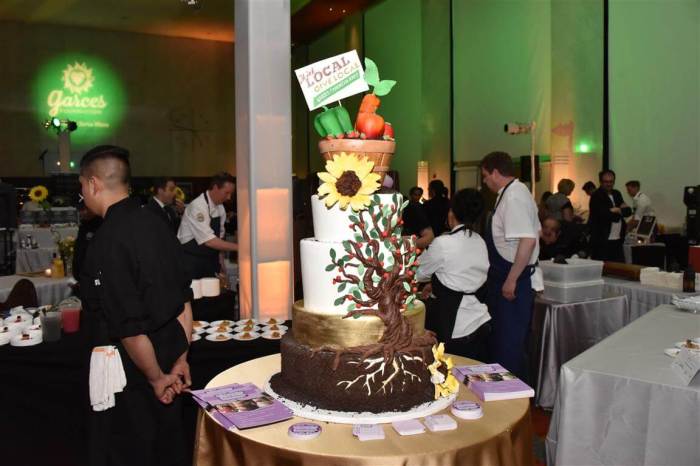There’s a lot that goes into moving house.
Now imagine nearly the entire city doing it at once.
Most leases in Boston turn over at the beginning of September, thanks in part to the many area colleges starting their fall semesters. That means thousands of students and other residents moving out of and into apartments at once.
If you haven’t booked a moving truck yet, well, you’re out of luck, but the good news is that with moving comes the opportunity to go through everything you haven’t touched since last Sept. 1 and toss it to the curb – often literally. There’s a reason this time of year is referred to as Allston Christmas, the faux holiday when mattresses and kitchen tables line the streets.
Each year, the city lugs away tons more trash than usual around the week of Sept. 1. In 2016, the neighborhood of Roxbury alone got rid of 1,549 tons of trash and recycling between Sept. 1 and Sept. 15, according to the city. In that same week, Brighton followed close behind with 1,008 tons of trash and recycling.
In 2015, trash and recycling collection went from about 350 tons a week on average to 729 tons for the week before Labor Day, just in Allston-Brighton alone, according to data from the city’s Public Works Department. In Boston proper, the numbers jumped from about 1,050 tons weekly, on average, to 1,545 tons of trash in the week before Labor Day and 1,360 tons the week of the holiday.
Though it’s tempting (and easy) to just toss things into the trash, is that the best option? Here’s what you can do with your no-longer-wanted belongings in a way that helps out fellow residents and makes thing a bit easier on the city overall.
What’s worth donating and how
You may not want to pack yet another cable knit sweater, but that could be a useful item for those less fortunate in the city. Pay attention as you go through your clothes, though, since there will surely be stuff to trash.
“If you wouldn’t buy it in a store then you probably wouldn’t donate it,” said Drew Forster, director of communications for the Salvation Army Massachusetts Division.
He admitted that that’s a hard thing to say when you’re constantly seeking donations, but the quality is what makes the items worth the effort. Along with choosing clothing that is in the right condition, make sure to bring it to a donation center in the right way.
“Donations should be bagged or boxed in such a way that they stay protected when they get to a donation center. That makes it easier for sorting,” Forster said. “It’d be a shame if somebody donated an item, but because it wasn’t packaged well – which [for Salvation Army, means] in a garbage bag firmly tied – doesn’t make its way out to the store and fulfill its mission.”
The Salvation Army seeks sellable items for their Family Thrift Stores, Forster said, which fund the organization’s adult rehabilitation centers. Find a donation center in or near your ZIP code here.
Other donation centers follow the same or similar guidelines as the Salvation Army. You can donate used clothing, shoes and household linens to The American Red Cross of Massachusetts, which then sells the items through a vendor to generate money for the organization’s Disaster Relief Fund. They have more than 100 bins located throughout eastern Massachusetts where you can drop off your clothing, but know that the Cambridge headquarters doesn’t accept these donations. To find a bin near you, call (617) 274-5200.
Goodwill also relies heavily on donations and takes all kinds of clothing along with small appliances, artwork, books, dishware and more. They don’t accept everything though, like mattresses, televisions and items in need of repair or missing parts, due to the high cost of disposal or safety concerns.
Goodwill tries to make it easy on donors through their College Hunks Priority Pick-Up partnership, through which eastern Massachusetts residents can donate items by filling out a pick-up request form. Goodwill donators get a discount on the price of the pickup, plus their donation is still tax-deductable. If you’d rather drop things off, check out the list of Massachusetts donation centers here.
The Big Brother Big Sister Foundation has multiple drop boxes throughout the city. They look for gently used clothing, along with household items like bedding or kitchenware. Along with selling these used items to raise money for the BBBS mentor programs, the foundation also distributes some items directly. In 2015, the foundation delivered winter coats to more than 4,000 people and gave more than 6,500 backpacks to elementary school children. Find a dropbox in Boston neighborhoods from Allston to Quincy here.
If you need to get rid of bigger items like furniture, check out the Massachusetts Coalition for the Homeless, which has a furniture bank for bigger household items that are given free of cost to a family or an individual in need. Currently, they’re in the most need of items like kitchen tables and chairs, coffee tables, dressers, rugs, bed frames and dishes (see a full list here.) Though they accept many items, some may not be needed at the moment, due to how quickly they can place the furniture.
“If someone’s getting rid of a tons of couches, we can only take so many before we move them through [to those in need],” said Robyn Frost, executive director of the Coalition. “[But] people are in need year-round, and we always need donations.”
To see if your furniture can be donated, fill out a donation inquiry form, and the Coalition will contact you with information about when they can pick up your items (for free) if needed.
Finally, you can also donate food. No, not the questionable jar that’s been in the back of your fridge for who knows how long, but nonperishables like pasta and canned beans. Rather than packing and lugging canned goods to your new place (you’ll have to go food shopping right away, anyway), drop them off to those in need.
Rosie’s Place, a women’s shelter at 889 Harrison Ave., collects items for their food pantry, including fresh fruit and vegetables, canned soups, peanut butter, oatmeal packets and more. Drop off items right at the shelter Monday to Friday from 8:30 a.m. to 4:30 p.m.
Pine Street Inn serves more than 2,000 meals to their emergency shelter guests each day. They rely on donations of staples like brown rice, whole wheat spaghetti and tomato sauce. Drop off donations at 100 Paul Sullivan Way any day of the week between 7 a.m. and 5 p.m.
The Greater Boston Food Bank accepts all food donations, but most often needs canned proteins like tuna, chicken, beans and beef stew, along with all types of pasta and dried or evaporated milk. Individual donations are best suited for local food pantries, which can be found through this GBFB tool.
What to do with the rest
Anything else you don’t want to lug to your new apartment is probably trash, and you’ll want to make sure your stuff is out on the street in time for your neighborhood’s trash pick up.
Find out exactly when that is and if there are any changes because of Labor Day by checking out Boston’s Trash Day app. Just type in your street address, or even what kind of item you want to get rid of, and the app will tell you how to best recycle or dispose of it, and when it’ll be out of your hair.
One thing to watch out for: bed bugs. In 2015, the city received 427 bed bug complaints, according to The Boston Globe. Though city workers will go around and tag trash that may be infected, this is a big reason why you don’t want to do any “shopping” for your new apartment from the curb.


















